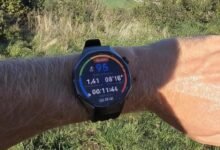What You Should Avoid When Taking Low Dose Naltrexone

Low-dose naltrexone (LDN) has gained popularity as a therapeutic option for managing addiction, autoimmune conditions, and chronic pain. While it offers numerous benefits, there are crucial considerations to ensure safety and effectiveness. Understanding what you should avoid when taking low dose naltrexone can prevent complications and optimize recovery outcomes.
Understanding Low Dose Naltrexone
Naltrexone is traditionally used to help individuals overcome opioid and alcohol dependence. In low doses, typically 1.5–4.5 mg, LDN works differently than higher therapeutic doses. It modulates the immune system, supports endorphin production, and can reduce cravings, making it a valuable tool in recovery and overall wellness.
However, despite its benefits, LDN is not free from precautions. Misuse or ignoring guidelines can reduce its effectiveness or cause adverse effects.
Key Considerations Before Starting LDN
Before starting LDN, individuals should consult a healthcare professional to assess:
- Current medications that may interact with naltrexone.
- Existing liver or kidney conditions.
- Personal history of opioid use, as naltrexone blocks opioid receptors.
Failing to consider these factors can compromise safety and limit the therapeutic potential of LDN.
What You Should Avoid When Taking Low Dose Naltrexone
- Opioid Use
One of the most critical things to avoid is using opioids. LDN blocks opioid receptors, which can precipitate withdrawal in individuals currently using opioids. It also renders opioids ineffective for pain management, which is essential to discuss with a healthcare provider. - Alcohol Consumption
Alcohol can interfere with naltrexone’s effectiveness, particularly in addiction treatment. Drinking while on LDN may increase the risk of liver toxicity and reduce the medication’s ability to curb cravings. Avoiding alcohol ensures better outcomes and reduces potential side effects. - Certain Pain Medications
Opioid-based painkillers, including prescription medications like hydrocodone or oxycodone, should be avoided. Non-opioid alternatives such as acetaminophen or NSAIDs are generally safer but should still be confirmed with a doctor. - Skipping Doses or Irregular Timing
Consistency is vital. Skipping doses or taking LDN at irregular times can reduce its efficacy. It is recommended to take the medication at the same time daily, often in the evening or before bedtime. - High-Dose Supplements or Immune Modulators
Since LDN interacts with the immune system, high-dose supplements or immune-boosting medications may counteract its benefits. Discuss all supplements with a healthcare provider to ensure compatibility. - Ignoring Medical Supervision
Self-medicating with LDN without professional guidance is risky. Regular monitoring for side effects and effectiveness is necessary for safe use.
Potential Side Effects of LDN
Even at low doses, some individuals may experience side effects such as:
- Sleep disturbances or vivid dreams
- Mild gastrointestinal discomfort
- Headaches
- Fatigue
Avoiding triggers, such as alcohol or opioids, can reduce the likelihood of these effects and support smoother recovery.
Lifestyle Adjustments While Taking LDN
Optimizing the benefits of LDN involves more than avoiding substances. Key lifestyle adjustments include:
- Maintaining a balanced diet to support liver health.
- Staying hydrated to help the body metabolize the medication efficiently.
- Practicing stress management techniques, such as mindfulness or gentle exercise.
- Ensuring adequate sleep, which can enhance the therapeutic effects of LDN.
See also: DBT Therapy: A Powerful Tool in Addiction and Mental Health Recovery
The Role of Medical Monitoring
Regular medical checkups are crucial when taking LDN. Liver function tests, assessments of symptom improvement, and medication reviews help ensure safe and effective use. Avoiding medical supervision can lead to unrecognized complications or reduced benefits.
Combining LDN with Behavioral Health Approaches
For individuals using LDN for addiction recovery, combining medication with counseling, therapy, or support groups can significantly improve outcomes. Avoid relying solely on medication; holistic care is essential for long-term success.
Signs You May Be Misusing or Experiencing Interactions
Be aware of signs that may indicate misuse or adverse interactions, such as:
- Persistent nausea or vomiting
- Severe fatigue or dizziness
- Unexpected pain flare-ups if opioids are used concurrently
- Increased cravings for alcohol or other substances
If any of these occur, seek medical guidance immediately.
Final Thoughts
Understanding what you should avoid when taking low dose naltrexone is essential for safety, effectiveness, and long-term recovery success. By steering clear of opioids, alcohol, certain medications, and unsupervised supplementation, individuals can maximize the benefits of LDN while minimizing risks.For professional guidance and support in addiction recovery, Touchstone Recovery provides comprehensive programs tailored to individual needs, ensuring safe and effective use of treatments like low dose naltrexone.







